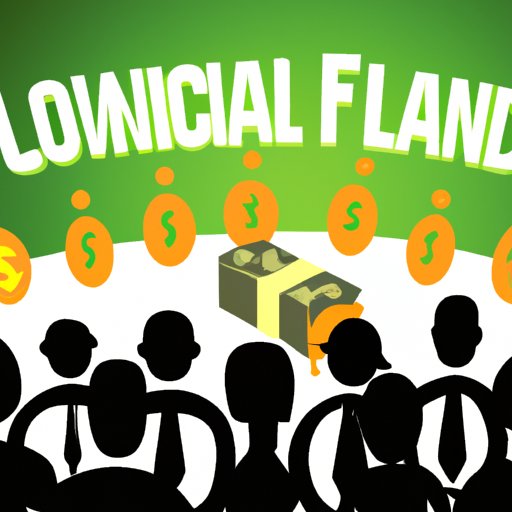Introduction
Starting a small business is an exciting endeavor that requires careful planning and preparation. When one of the founders has bad credit, however, the challenges become greater. Bad credit can affect the ability to obtain financing, making it more difficult to get the business off the ground. It is important to understand what constitutes bad credit, as well as the strategies for overcoming these challenges. With the right approach, it is possible to start a small business even with bad credit.
Assessing the Impact of Bad Credit on Starting a Small Business
Before exploring strategies for starting a small business with bad credit, it is important to understand what constitutes bad credit and how it can affect the process. A bad credit score is generally considered to be any score below 629, according to Experian. This score can range from very poor (300-579) to fair (580-669).
The biggest impact of bad credit is on loan eligibility. Many lenders and investors will look at a person’s credit score when deciding whether or not to provide financing for a small business. Those with a low credit score are often seen as higher risk and may be denied a loan or line of credit. In addition, those with bad credit may find it difficult to attract investors who are willing to take the risk of investing in a business with a questionable credit history.
Bad credit can also affect a business’ ability to obtain lines of credit. Lines of credit are often used to finance short-term needs, such as inventory or equipment purchases. Without access to lines of credit, a business may struggle to meet its immediate financial obligations.
Strategies for Financing a Business with Poor Credit
Fortunately, there are a number of strategies that can be employed to finance a small business with bad credit. The first step is to assess the potential impact of bad credit on loan eligibility. It is important to understand that lenders may view someone with bad credit as a higher risk and may be less likely to approve a loan. Knowing this, it is important to explore alternative methods of financing.
One option is to consider alternative lenders, such as online lenders or peer-to-peer lending platforms. These lenders may be more willing to work with those who have bad credit and may offer better terms than traditional banks. It is important to research the different options available and compare rates and terms before committing to a loan.
Another option is to use personal savings and other assets to finance the business. This can be a great way to get the business off the ground without having to rely on outside sources of financing. It is important to ensure that all personal assets are protected, as they could be at risk if the business fails.
Finally, it is possible to negotiate terms with suppliers in order to obtain the necessary supplies and materials. Negotiating payment terms can be a great way to purchase the items needed to run the business without having to pay upfront. This can help to preserve cash flow while allowing the business to obtain the supplies it needs.
Finding Alternatives to Traditional Lenders for Small Businesses
In addition to alternative lenders, there are a number of other sources of financing for small businesses with bad credit. Credit unions are often willing to work with those who have bad credit and may be able to provide financing at a lower interest rate than traditional lenders. Friends and family can also be a great source of financing, as they may be more willing to take a chance on a business that has been deemed too risky by traditional lenders.

Learning from Other Entrepreneurs Who Have Started Businesses with Bad Credit
It can be helpful to learn from others who have successfully started businesses with bad credit. Researching success stories can provide valuable insight into the strategies that have worked for others in similar situations. In addition, seeking advice from other entrepreneurs who have faced similar challenges can be a great way to gain perspective and develop a plan of action.

Utilizing Crowdfunding to Fund a Small Business
Crowdfunding can be an effective way to finance a small business with bad credit. There are a number of platforms available, including Kickstarter and Indiegogo, that allow businesses to connect with potential investors. It is important to create an effective campaign that outlines the goals of the business and the benefits of investing in it. Successful campaigns can generate substantial funds that can be used to launch the business.

Understanding How to Manage Cash Flow Despite Bad Credit
When starting a small business with bad credit, it is important to understand how to manage cash flow. Budgeting is key to ensuring that the business has enough money to cover expenses and stay afloat. It is also important to prioritize payments in order to ensure that the most important bills are paid first. Automating payments can help to ensure that all bills are paid on time and avoid late fees.
Conclusion
Starting a small business with bad credit can be challenging, but it is not impossible. Understanding the impact of bad credit on loan eligibility and exploring alternative sources of financing can help to minimize the risks associated with starting a business. Utilizing crowdfunding and managing cash flow effectively can also help to ensure the success of the business. With hard work, determination, and persistence, it is possible to start a successful small business despite bad credit.
(Note: Is this article not meeting your expectations? Do you have knowledge or insights to share? Unlock new opportunities and expand your reach by joining our authors team. Click Registration to join us and share your expertise with our readers.)
